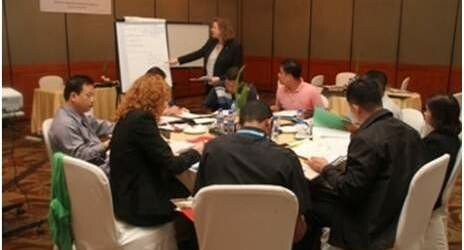
The participants of the forum came together to discuss past experiences and the future potential for Philippines to receive international assistance to respond to disaster situations. The main focus was to improve participants’ awareness and understanding about national, regional and international legal frameworks for disaster response in particular relating to international assistance. A key aspect of the Forum were interactive sessions and discussions on strengths and challenges relating to facilitation and regulation of international assistance.
In the introductory remarks made by Gov. Corazon Alma de Leon, PRCS board member, highlighted the importance of further improving legal preparedness by stressing: “An important issue we need to look into is how we can prevent suffering. Nations need to work together as well to come up with preventive measures that could fight disasters. We have to build the capacity of disaster prone countries like the Philippines to reduce disaster risks and vulnerability. We have to raise disaster consciousness in order to be prepared at all times. We can save much if we focus our resources on the preventive measures rather than on recovery efforts.”
Philippines has in recent years spent substantial time and effort to develop its disaster risk reduction and management polices and frameworks. This has includes initial steps to improve preparedness to facilitate and regulate foreign disaster response.
The Philippines' 2010 disaster management law and regulations establish that it is the policy of the state to incorporate internationally accepted principles and guidelines of disaster risk management and furthermore that foreign donations and importations of humanitarian assistance and disaster relief shall also be guided by the IDRL guidelines.
Following roundtable discussions and reflections, the Forum concluded by capturing key recommendations on next steps that should be taken, including:
- A full overview of Philippines legal and regulatory preparedness to facilitate and regulate foreign disaster response. This will provide knowledge on the status of implementing IDRL Guidelines in Philippines.
- A study of relevant departmental laws, implementing rules and regulations, standard operating procedures, as well as other key documents. This should be done under the leadership of the Office of Civil Defence, and in active engagement and coordination with all departments.
- A detailed action plan for revisions of relevant aspects of the Philippine legal and regulatory framework following the outcomes of the study, with a specific focus on recommendations.